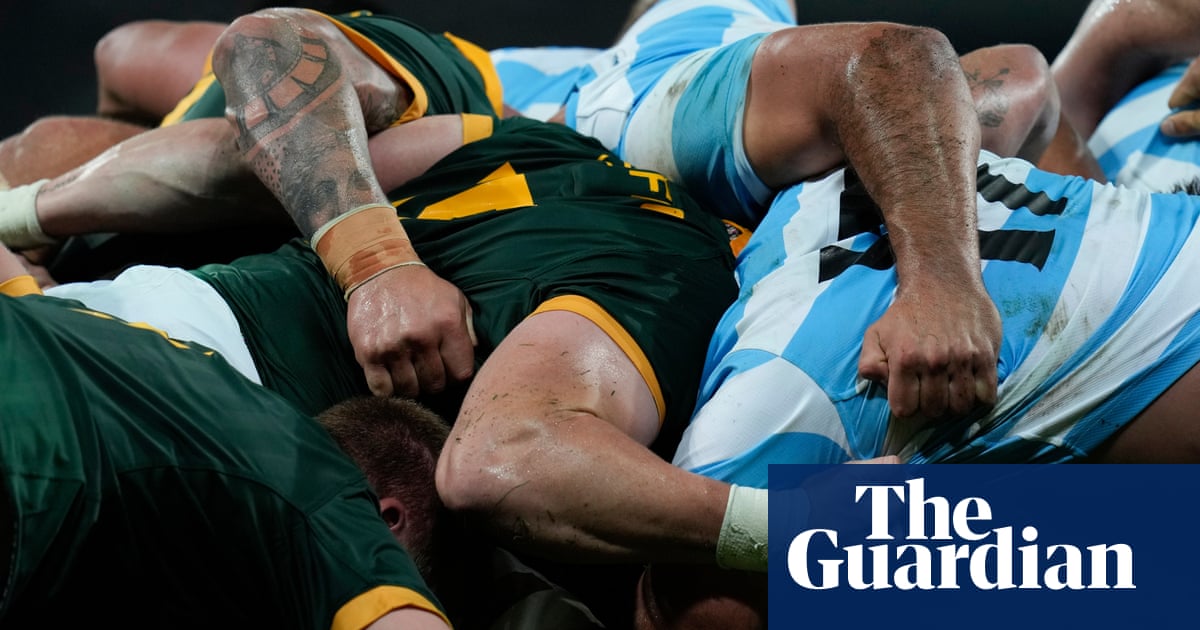A significant number of former elite players who have participated in World Rugby’s new brain health service programme have been identified as being “at risk” of cognitive problems in later life.
So far 131 former rugby union players have registered to take part after last April’s launch, although only 65 have completed the process. Of those, one quarter were referred for specialist treatment. The service is not designed to provide a diagnosis, only to provide a risk assessment for former players.
The news comes as Rylands Garth, the law firm representing a group of former amateur and professional players, says it has received a “surge of new sign-ups” and that it now represents 725 former rugby union players, as well as 280 former rugby league players. They have a range of neurological conditions, including Parkinson’s, motor neurone disease, chronic traumatic encephalopathy and dementia.
The brain health service was launched by World Rugby last year to provide aftercare for retired players and is available free of charge to any retired player who played elite rugby in Ireland, Australia, Wales, South Africa and New Zealand.
The sport’s governing body is hoping to launch it in more territories this year, but progress has been slowed in France, Argentina and Japan by the challenges of translating the service into different languages. It is not, however, available in England, where the Rugby Football Union runs a similar programme in partnership with Imperial College London.
During a presentation at World Rugby’s annual player welfare symposium, the team behind the brain health service expressed concern about the high number of former players who dropped out, or who failed to attend follow-up appointments with medical providers.
They say that a large number of the withdrawals were because the players were so worried about what the tests might show. The team are planning to encourage face-to-face consultations in an effort to try to reduce participants’ levels of anxiety.
World Rugby’s annual review of injuries revealed that the number of concussions suffered in elite male rugby during 2023-24 was in line with previous years, at 13 per 1,000 playing hours, or just under one every two matches. In elite women’s rugby over the same period, the figure was 11 per 1,000 playing hours, or one every 2.3 matches, which is an uptick. On average, each concussed player was out of the game for around three weeks.
Concussions, though, are only a part of the problem. There is increasing effort to address the impact of sub-concussive blows, which are now being monitored by instrumented mouth guards. The latest research carried out in France on the Top 14 showed that the top 10% of international players were experiencing around 2,000 physical contacts a year, and there is an increasing focus on reducing “player load”. World Rugby is launching new guidelines in partnership with the global players’ union, International Rugby Players (IRP), stipulating that all players should have a minimum of 12 weeks without physical contact every year.
after newsletter promotion
This is on top of the existing guidelines, that recommend a five-week off-season, and a maximum of 30 matches per season or one week’s break for every six consecutive games played. The workloads of most domestic players fall within those limits, but many international players, and in particular “cross-border” internationals who play their Test rugby in one country and their club rugby in another, are going well beyond them. Argentinian internationals who play their domestic rugby in the English Premiership, for instance, in effect have a 12-month season.
The guidelines have been drawn up by a group of players, coaches and sports scientists, who spoke during a panel discussion about the tension between player welfare and the commercial and competitive imperatives of the sport. The former Wales captain Ken Owens explained that international players in particular often find themselves in a situation where a large part of their five-week off-season is used for pre-season training. “You come back off summer tour and you potentially get four or five weeks off, but the reality is you’re almost straight back into your club season,” Owens said.
The Bath coach, Johann van Graan, who is also part of the group, said that his club have a mandatory six weeks of rest for all Test players, but that he has had to give more than one international all February off in order to achieve it. Bath have a big enough squad to get away with it, but not every club has that luxury. “As coaches, we’re not judged on what we say on panels, or how we are as people,” Van Graan said, “we’re judged on whether we win or not.”
